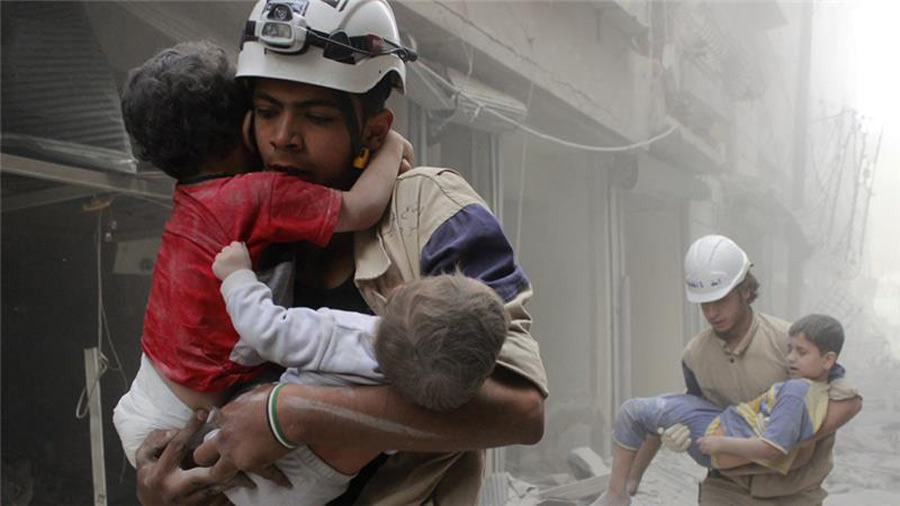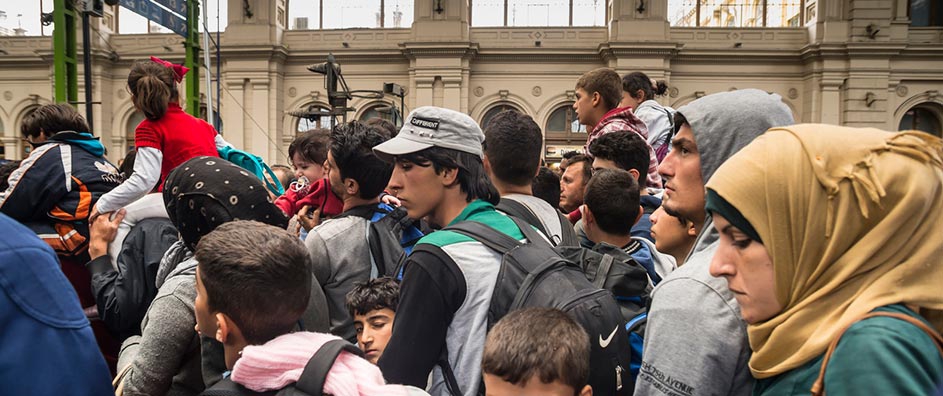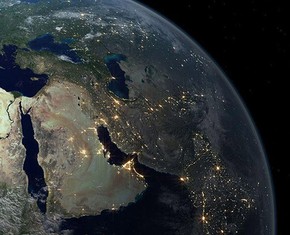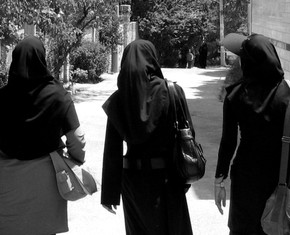The views expressed in our content reflect individual perspectives and do not represent the authoritative views of the Baha'i Faith.
The headline reads: “Whoever saves one life saves all of humanity.”
The article tells the story of the White Helmets of Syria, a troop of life-savers and rescue workers who have taken this verse from the Qur’an into the battlefield: “Save one life and save all humanity.”
My body fills with tears. What must these aid workers feel? What must these people waiting to be rescued feel? What about those who don’t survive? What shock waves are generated, when so many lives are so horribly severed from life?
It’s not only Syria. We all live in the crossfire of spiritual injustice, spiritual oppression, spiritual violence. Why spiritual? Because it is our spirit that cries out for peace. It is our spirit that cries out for justice. Bread and security become palatable only when we honor our deepest integrity.

People agonize over “what to do” and feel helpless: What can we do? What, in the face of such dire human need, can we possibly do?
The physical, emotional and spiritual bombardment we are hit with, individually and as a planet, is intense. Intense. That’s a word I use and hear a lot these days. Because of this unrelenting intensity, tension and stress are the currency of today’s world. I constantly hear the refrain “I’m not doing enough,” usually paired with, “and I’m exhausted.”
How can we lift this burden of spiritual violence and forge a chain of relationships and life-support that will span and heal the distances that divide us?
In this atmosphere of fear and stress, people talk a lot about “self-care” and “self-compassion.” But the truth is, few of us feel cared for–or know how to care for ourselves. That’s dangerous, because warfare comes from human beings, and throughout history our mode of being has usually led us to fear, conflict, and oppression.
A profound sense of being misunderstood and rejected–and therefore only safe around people “like us”–leads to brutality of all kinds. You see it in gender-based violence, gang rivalry, religious extremism, racial hatred, you name it. I notice this destructive pattern in myself. When I’m unkind to myself, my thoughts are harsher, more intolerant and critical of others.
So how can we accept and understand what is inside each and every one of us? We so readily blame others for acts of terror—but are we ready to take responsibility for the terrors, and wonders, in ourselves? This is not a matter of expelling or exorcising our perceived evil or “sinfulness.” Instead, how can we learn an inner listening, deep and loving, without judgment, and without solution?
This kind of listening opens us up to what I call “hopeful despair.” By listening to our deepest wounds, our secret shames and splendors, we grow closer to each other–and more honest with ourselves. We stop fleeing or projecting our nightmares. We start living inside our own skin – even when our mind is in agony, even when our body attacks us, fails us, disappoints us. We begin to see that, deep down, our gifts and traumas spring from the same source.Today’s world asks us for a new kind of strength—not brutal, vain, imperious, or even heroic. We need the strength of humility, the strength to kneel, to reach out for help and solace, even when we don’t know where to turn. Often, in our weakest moments, our realness shines through, and extends an unexpected hand.
Think of it: to save one life is to save all humanity. One life! If that life happens to be your own, this is no less a feat of courage and toil and grace. Because the strong light of one living person can heal the world:
To be awake is to be alive. I have never yet met a man who was quite awake. How could I have looked him in the face? – Henry David Thoreau
How would I live if I was exactly what’s needed to heal the world? – Rachel Naomi Remen
By listening and staying with the spirit, we re-learn how to live. In this way, we find the humility and the strength to help ourselves and others. The solutions will come. But the only lasting solutions grow from true understanding–which begins with a sincere, humble admission of how little we can ever truly understand. The Baha’i teachings ask us to apply that humility in our everyday lives:
Let your thoughts dwell on your own spiritual development, and close your eyes to the deficiencies of other souls. Act ye in such wise, showing forth pure and goodly deeds, and modesty and humility, that ye will cause others to be awakened. – Abdu’l-Baha, Selections from the Writings of Abdu’l-Baha, p. 203.
What can we do for Syria’s people, or for the protests erupting across America, the terrorism in Europe? Right now, we need beauty of all kinds, to teach us how to weep, how to blaze with truth and hope. So I encourage you: give your beautiful outcries to the world…
Within Herself, Such a Cry
Her bed is spread with the moon and stars.
The ground is very cold and hard.
But the air is free,
and drinking it is a sign she is alive.
She cannot feel her legs or arms
trapped beneath the rubble,
but her mind is free.
And as she waits for the white helmets
to come, in their helicopters
with their jaws of life,
she draws her soul through her throat
like a golden yoke through the pinhole
of an egg – she watched her mother
and aunt do this, dying Easter eggs.
Where are they?
Her soul scans the city, a golden canary
rising through smoke and flame.
The air is very cold, but it is free,
and drinking it is a sign:
She is alive.
You May Also Like
Comments

















~Bahaullah